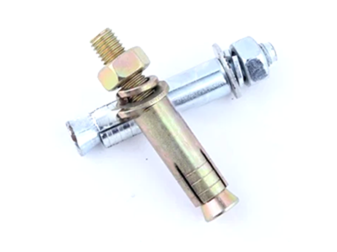Nov . 13, 2024 14:58 Back to list
m10 wall bolts
Understanding M10 Wall Bolts A Comprehensive Guide
When it comes to construction and mechanical applications, choosing the right fastener is crucial for ensuring the integrity and longevity of structures. One type of fastener that often stands out in various applications is the M10 wall bolt. This article will explore the specifications, advantages, and applications of M10 wall bolts, providing insights for professionals in the construction and engineering fields.
What is an M10 Wall Bolt?
The designation M10 refers to the metric screw thread size, which measures 10 millimeters in diameter. This standard is recognized globally and is commonly used in various construction projects. Wall bolts, on the other hand, are fasteners specifically designed to be anchored into walls, typically made of concrete, brick, or masonry. They often feature a head that allows for the application of torque using a wrench or socket, facilitating secure fastening.
Specifications of M10 Wall Bolts
M10 wall bolts usually come in different lengths and materials, allowing engineers and builders to select the appropriate type based on their specific needs. The threads are classified under the ISO metric thread standards, ensuring compatibility with various nuts and washers. Commonly, M10 bolts are made from materials like stainless steel, carbon steel, or galvanized steel to withstand environmental conditions and resist corrosion.
The most important specifications to consider include the following
1. Diameter An M10 bolt has a nominal diameter of 10 mm. 2. Length M10 wall bolts are available in various lengths ranging from a few centimeters to several dozen centimeters, depending on the application. 3. Strength Grade Different grades indicate the bolt’s strength. For example, Grade 8.8 is a common specification for structural applications, providing good tensile strength. 4. Coating Many M10 wall bolts are available with protective coatings to enhance corrosion resistance, especially in outdoor environments.
m10 wall bolts

Advantages of Using M10 Wall Bolts
1. Strength and Durability M10 wall bolts are engineered to provide excellent tensile and shear strength, making them suitable for heavy loads and structural applications. 2. Versatility These fasteners can be used across a wide range of materials, including wood, steel, and masonry, expanding their applicability in construction. 3. Ease of Installation M10 wall bolts are easy to install, often requiring only a drill to create a hole and an appropriate tool to secure them firmly. 4. Corrosion Resistance With the option of corrosion-resistant coatings, M10 bolts are ideal for outdoor applications prone to moisture.
Applications of M10 Wall Bolts
M10 wall bolts are commonly used in a variety of applications, including
- Structural Engineering Securing beams, columns, and frames in building construction. - Mechanical Equipment Attaching heavy machinery or fixtures to walls or floors. - Home Improvement Fixing shelves, cabinets, and other fixtures to walls. - Outdoor Structures Fastening items such as fences, gates, or planters, particularly in gardens and patios.
Conclusion
In conclusion, M10 wall bolts are a fundamental component in many construction and engineering projects. Their robust design, ease of use, and versatility make them an excellent choice for securing various fixtures and ensuring structural integrity. Whether you are a contractor, engineer, or DIY enthusiast, understanding the specifications and applications of M10 wall bolts can help you make informed decisions for your projects. With proper selection and installation, M10 wall bolts can enhance the safety and durability of your constructions.


